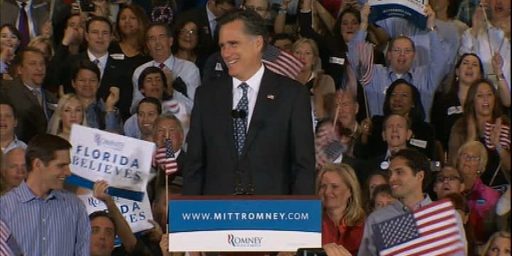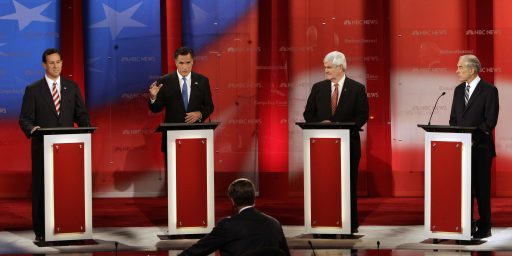A Bit More on that Gingrich Marijuana Quote
I was contacted by the 2012 Republican Candidates site and they told me that they plan to take down the Gingrich marijuana quote since they had been incorrectly attributing the quote to WSJ. It is current here with a note of explanation. They are removing the quote because their policy, as shared with me in an e-mail, is to have two credible sources per quotation.
They did, however, point me to another source of a portion of the quote. The portion that went “See, when I smoked pot it was illegal, but not immoral. Now, it is illegal and immoral" (but not the part about going to jail or not) can be found in the a book by Brian K. Payne and Randy R. Gainey, Drugs and Policing: A Scientific Perspective on page 18.
However, there is no citation as to the source of the quote.
It appears to me to be an internet meme often called “A List of Famous Drug Users” (and with Gingrich misspelled as Ginrich). I found an example from a 2003 posting at a my-diary.org page (dated 5-1-03 and the book in question was published in 2005). That same list can be found elsewhere.






Stephen… Seems to me this might be the beginning of a paper… or at least an interesting research project for an undergrad.
@mattb: You mean the meme generation/truthy-ness of it all?
@Steven L. Taylor:
Yes… it would lean pretty heavy on the info science/comm side in that it would in part trace the way in which the meme was created and perpetuated.
But, the other side of it — the contextual/content/truthy component, needs some unpacking too — how the quote had to seem “truthy” enough — that most of us nodded our heads and thought that it sure sounded like something that Newt would say.
Probably better for an undergrad or as a popular publication, but I think there’s a good story in there…